Insights into the forces shaping our industry.
Emerging Lighting Professionals: Advice
Hiring Advice
As the third and final blog of the Emerging Lighting Professionals series, here’s the advice lighting firms had for emerging professionals in the lighting industry:
1. Be yourself, understand who you are. Write down your values i.e. helping others, being creative, financial security, etc.; and your interests, for example: what do you pay attention to, what are you curious about and what concerns you? What is your temperament: do you prefer being alone or with other people, do you make decisions based on feeling or facts, and/or do you prefer details or big ideas? Are you a morning person or night owl; when does your energy peak? What are your strengths, skills, abilities and your character strengths? Research different positions and look at job descriptions to see if they align with your notes about yourself.
2. Analyze the different sectors of the industry: manufacturers, specifiers (architectural firms, lighting design firms, MEP firms, etc.), rep agencies and distributors; determine which sector you prefer to be in. Manufacturers handle their own product line and are the product experts. Rep agencies are the middleman of the manufacturers and distributors. They represent many manufacturers products; which can be up to 100 manufacturers or more and they are market specialists, so they know all the distributors and specifiers in their city and which buildings are being built or retrofitted. Distributors stock the products for the manufacturers, so they can quickly ship to job sites. Specifiers are lighting design firms, architects or engineering firms and they design the building and select what products to buy. Specifiers are product agnostic, so they can use any manufacturer’s products they want. They design what the lighting will look like in the space and choose fixtures to create a specific effect.
3. Find a mentor. Choose someone that’s seasoned and that you admire; ask them if they will be your mentor, take them to lunch or grab coffee; ask for their advice and ask them to hold you accountable. Choose wisely, look for someone that is enthusiastic, passionate, successful and positive. Choosing someone negative will drag you down.
4. In preparing for an interview, dress and act professionally. Research the company and the industry, read their website, google the company name for other news and research their key employees on LinkedIn. Bring several copies of your resume, a notepad and pen. For lighting design or engineering positions, bring a few copies of your portfolio in both a hard and digital copy. Your portfolio should exemplify your work, whether it’s from school or a job, and give them examples of the work you did to get to that design and be prepared to discuss your process/involvement in creating that design. Be prepared to discuss your accomplishments and skills with examples to support them. Rehearse answering those questions before the interview several times to build up your confidence. Use STAR analysis as a guide:
a. Situation. Backstory, who, what, where, when
b. Task. What was your exact involvement in the situation, what were you assigned to do?
c. Actions. The steps you took to solve the challenge, how you attacked problems, how did you overcome roadblocks and any unique methods you used?
d. Results. How were things better off because of your actions? What did you learn? Include numbers where you can, for example: increased sales by 10%, came in under budget by 10%, etc.
5. Be patient. You must put in your time; and learn your craft both on the job and on your own. The seemingly mundane details have value and are important to master your craft. I tell my colleagues all the time, we must return to basics when we are in slump/when sales are down; they are what made you who you are today. Exercise those basics until you’ve mastered them. Michael Jordan famously said that “you can practice shooting for 8 hours a day, but if your technique is wrong then all you become is very good at shooting the wrong way. Get the fundamentals down and the level of everything you do will rise. If you get away from the fundamentals the bottom will fall out.”
6. Be enthusiastic and passionate about lighting and what you want to do; I hear this from my clients all the time. They are excited about a candidate on paper and when they come in for an interview, the candidate shows no interest or passion. If you’re not passionate or excited about the opportunity, they’ll question your longevity within the company and industry. Frank Bettger said in his book, How I Raised Myself from Failure to Success in Selling, “enthusiasm is by far the highest paid quality on earth, probably because it is one of the rarest; yet it is one of the most contagious.” How do you become more passionate and enthusiastic? Act enthusiastically (fake it ‘til you make it), surround yourself with enthusiastic people, focus on what makes you happy and what you are grateful for and take care of yourself physically and mentally (eat well, get enough sleep, exercise). Create a vision board: find pictures that represent your goals, of what makes you happy, things you’d like to buy and/or places you’d like to visit; and hang it somewhere as an everyday reminder.
Here at Egret Consulting, we are always willing to help. Please reach out to us if you have any industry questions or are looking for professional tips at info@egretconsulting.com.
Brooke Ziolo is a contingent and retained executive recruiter working exclusively within the Lighting Industry. To learn more about how she can help your Lighting company, LED company or Lighting Design Firm attract talent, check out her biography, LinkedIn profile or email her at bz@egretconsulting.com.
